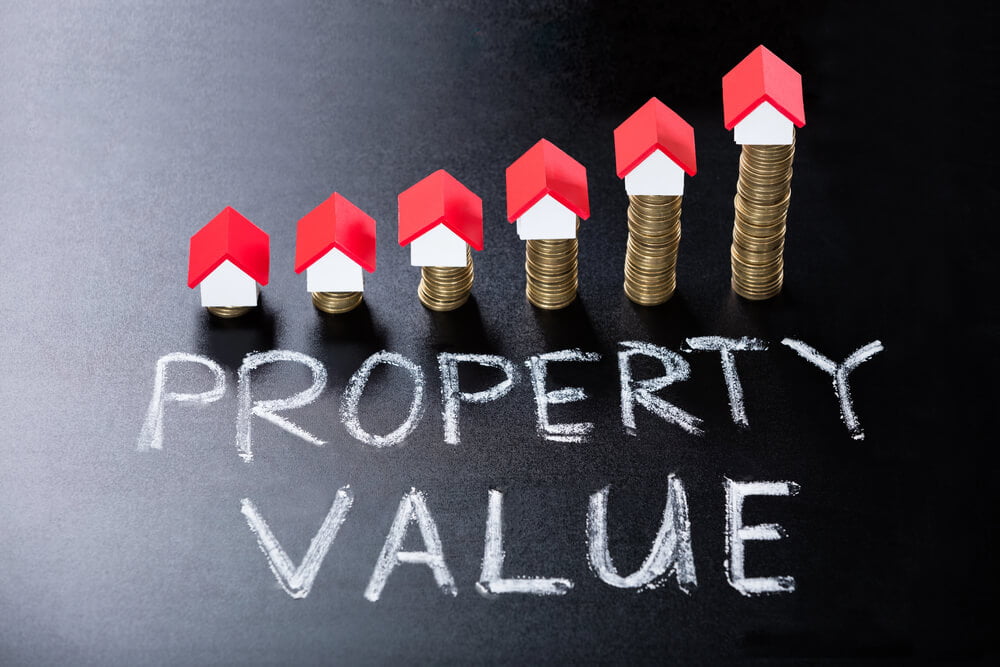Purchasing a property can already be a scary ordeal, and an inaccurate property valuation can only compound this stress. A poorly assessed property valuation can result in costly repercussions, particularly when calculating stamp duty. Even overestimating the value of a property could lead to thousands more in taxes paid than what should usually be required, while underestimating its value could lead to legal troubles and penalties for underpayment. The case is clear, accurate valuations are crucial.
An accurate property valuation ensures that all parties involved in a real estate transaction (buyers, sellers, and government authorities) have a clear understanding of a property’s true worth. Having a clear understanding of what a property is actually valued becomes particularly critical when calculating stamp duty. A precise valuation ensures that buyers pay the right amount of stamp duty, avoiding potential overpayments or compliance issues.
In this post, we’ll explore how accurate property valuations can save you money on stamp duty, prevent overpayment, and help you stay compliant with tax laws, offering peace of mind and perhaps a way to keep a little bit more money in your pocket.
Understand stamp duty
So what is stamp duty?
Stamp duty is a government tax that is imposed on property transactions and is calculated as a percentage of the property’s purchase price. The amount a homeowner owes in stamp duty increases with the value of the property being bought or sold. Usually, this stamp duty is paid at the time of the property transfer (when ownership changes hands) and varies depending on the state or territory in which the transaction takes place.
The rates and thresholds for stamp duty can vary widely depending on the region or territory of the property. Each region has its own rules and scales, with some areas offering exemptions or concessions for first-time buyers or those purchasing off-the-plan properties.
Understanding the local stamp duty regulations is essential, as this tax can represent a substantial portion of your property-related expenses. For example, in high-value transactions, the stamp duty cost can be tens of thousands of dollars, and failing to factor it in can lead to budget shortfalls.
And why is it so important?
When purchasing a property – whether it’s a family home, investment property, or commercial building – it is critical to consider stamp duty as it can seriously affect the total cost of purchasing a property. Since stamp duty is based on the property’s value, an accurate valuation cannot be understated. If your property is overvalued, you might end up paying more in stamp duty than necessary. Conversely, undervaluing the property could result in legal complications and penalties for underpayment. Therefore, understanding and accurately calculating stamp duty helps ensure that you’re financially prepared and compliant, preventing unexpected financial burdens and safeguarding your investment.
The role of accurate property valuations
What does a property valuation process look like?
An accurate property valuation is more than just a number—it’s a comprehensive evaluation that involves an in-depth analysis of several factors. A professional valuer doesn’t simply glance at the property’s physical characteristics (such as its size, layout, and condition), but they also dive into the broader real estate market by examining recent sales of similar properties in the area. This comparison helps them understand current market trends, whether prices are rising or falling, and how your property stacks up against others in the neighbourhood.
Beyond basic features, a valuer takes note of any unique elements that might add value to your property. Upgrades like a renovated kitchen, newly installed solar panels, or energy-efficient windows (such as double glazing) can positively impact its market worth. Other unique features, such as a large outdoor space or a prime view, are also taken into consideration.
Once all this data is gathered, the valuer compiles it into a comprehensive report that not only reflects the property’s current market value but also provides a clear and detailed assessment of why that value was assigned. This detailed approach ensures that the valuation is accurate, reliable, and based on a wide range of factors, helping you make informed decisions about your property.


What can influence your property valuations?
Well, several factors can play a role in determining a property’s value.
- Location: The location of a property is a significant factor in its valuation. Properties that are located in highly sought-after neighbourhoods often command higher values due to their proximity to desirable amenities such as schools, parks, shopping centres, and public transport links. The overall appeal of the neighborhood, including safety, aesthetic qualities, and future development potential, plays an important role in determining a property’s value. Areas with strong community ties and low crime rates usually have higher property values.
- Condition and age: The condition and age of a property greatly influence its market value. Well-maintained and recently renovated properties generally achieve higher valuations because they offer a move-in-ready condition with fewer immediate repairs needed and therefore lower upfront costs. Older properties or those requiring significant repairs may see a reduction in value. Factors such as the quality of construction, the state of major systems (like plumbing and electrical), and aesthetic upkeep are all considered. Recent upgrades, such as modern bathroom, new roofing, or energy-efficient systems, can also boost a property’s value.
- Market trends: Market trends play a bigger role than you think when it comes to determining the value of a property. Valuers examine trends such as supply and demand dynamics, interest rates, and broader economic factors to assess property values accurately. A high demand for properties coupled with low supply can drive up prices, while economic downturns or increased interest rates might lead to decreased property values. Professional valuers stay informed about these trends to ensure their assessments reflect the most current market conditions.
- Size and layout: The size of a property (encompassing both land and floor space) is a fundamental factor in its valuation. Larger properties typically command higher values due to the increased space and potential for more extensive living areas. Additionally, the layout and design of the property are crucial. Functional and appealing layouts, such as open-plan living spaces or well-designed floor plans, can enhance a property’s value. Properties with multiple bedrooms, bathrooms, and versatile living spaces often attract higher valuations, as they cater to a broader range of buyer needs and preferences.
Less stress and more money in your pocket
Accurate property valuations are crucial in determining the correct amount of stamp duty. A precise assessment of a property’s value will ensure that you pay the appropriate amount of stamp duty and no more, while avoiding the risk of underpayment. Overpaying can lead to unnecessary financial strain, while underpayment could result in legal repercussions and penalties. An accurate valuation helps to ensure that you meet your tax obligations accurately and fairly, providing peace of mind and protecting your investment from unforeseen financial setbacks.
Financial benefits of accurate valuations
Avoiding overpayment
Not to sound like a broken record, but it is so important to understand how an accurate property valuation plays a role in preventing overpayment of stamp duty and significant financial advantages. As mentioned before, stamp duty is calculated as a percentage of the property’s purchase price or market value—whichever is higher. If a property is overvalued, it leads to a higher base for calculating stamp duty, which can result in an inflated tax bill that can amount to thousands of dollars that you could be saving! An inflated valuation not only increases your immediate tax expenses but can also affect your overall financial planning and budget management. This is exactly why it is critical that the property valuation is accurate and reflective of the true market value, helping you to mitigate the risk of paying excessive stamp duty. Paying the right amount in stamp duty means you can allocate your resources more effectively, preserving your financial flexibility and allowing you to invest in other areas, whether thats back into the property itself or towards personal hobbies, like that lego collection you haven’t told your partner about. In essence, an accurate property valuation safeguards you from unwarranted tax burdens and supports more strategic financial management.
Comply with tax laws
As much as you don’t want to pay too much stamp duty, it is equally important to not pay too little to comply with tax laws. Accurate valuations are essential for maintaining compliance with tax laws and regulations. Inaccurate property valuations can lead to complications with tax authorities, including potential penalties for underpayment or overpayment of taxes. If a property is undervalued, you could face legal issues and fines for not paying the correct amount of stamp duty. Conversely, an overvalued property might result in an excessive tax burden that could be scrutinised by tax authorities. By getting a correct property valuation, you ensure that your stamp duty calculations are accurate and align with legal requirements, helping you avoid any potential legal and financial repercussions. You will feel much better not only knowing the actual value of your property but a peace of mind that you won’t be facing any unexpected legal challenges due to incorrect tax payments.


Conclusion
Accurate property valuations are essential when it comes to calculating stamp duty, offering both financial savings and legal peace of mind. A precise valuation helps prevent overpayment, ensuring you don’t end up paying more stamp duty than necessary. It also keeps you compliant with tax laws, avoiding potential penalties or legal complications. By understanding the valuation process and the key factors that affect a property’s worth, you can better manage your finances and safeguard your investment. Ultimately, accurate valuations are not just about determining the property’s value—they are a crucial step in ensuring a smooth, financially sound real estate transaction. We get it, this can be very overwhelming and stressful, especially when you have so many other stresses associated with buying or selling a property. However, paying the right amount of stamp duty is not something you want to get wrong, so reaching out to a professional that can give you an accurate property evaluation can make the whole process smoother and more stress free.



Social